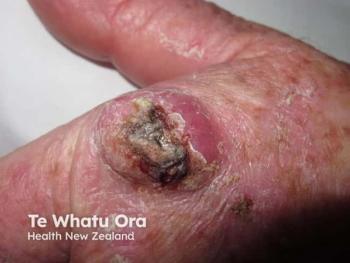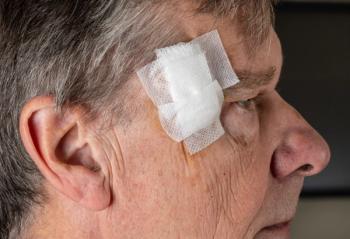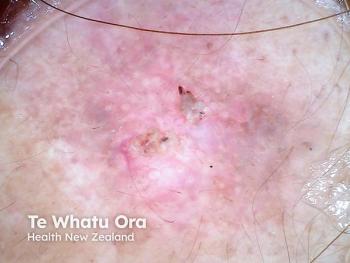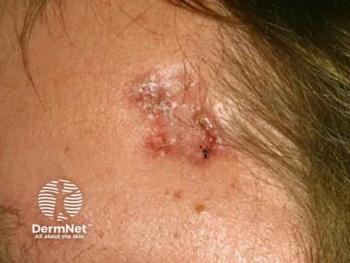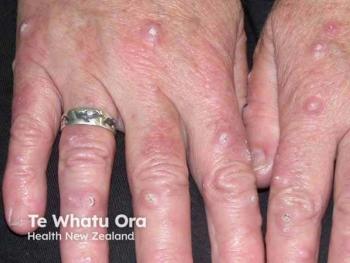
Patient Case: 49-Year-Old Caucasian Woman With Neglected Large BCC
Sherrif F. Ibrahim, MD, PhD, presents the case of a 49-year-old White woman with neglected large basal cell carcinoma.
Episodes in this series

Sherrif F. Ibrahim, MD, PhD: Dr Patel, I want to present a case that I recently saw in my practice. It’s a 49-year-old woman. She was referred to me for a neglected large basal cell cancer. We had a long consultation. We talked about the potential for surgery. We talked [about] the potential for systemic hedgehog inhibitor treatment. I made a referral to surgical oncology for her to meet with our local provider. We did some imaging. First, we ordered an MRI, and we revealed that the deep margin of the tumor invaded all the way through the subscapularis muscle. This would make surgery very challenging and difficult.
All of us together, in conjunction with the multidisciplinary tumor board, opted to start systemic hedgehog inhibitor therapy. As is the case with many of these patients, we saw an incredibly rapid response to treatment. The tumor shrank extremely quickly, over just a few weeks, and surprisingly, she tolerated it well. She was very hesitant because of [potential] hair loss and people at work asking questions and so forth, but well into treatment, she didn’t have anything beyond what you would consider nuisance adverse effects.
Interestingly, at about the 4- to 5-month mark, she had progression of the tumor while she was on the drug in the form of small nodules that started showing up within the treatment field. She and I then discussed that there could be tumor everywhere or it could be isolated lesions. I said we’d be able to discover that with Mohs surgery, certainly if we could get around these lesions. She was amenable to proceeding with surgery, so we resected these 2 small nodules with Mohs surgery. They cleared in 2 stages. They were closed primarily, and she did well. A couple of months later, she said, “I’m getting tired of being on oral hedgehog treatment,” and she stopped. Now, many months after any kind of treatment, she has done well, with no clinical evidence of disease.
Transcript edited for clarity
Newsletter
Like what you’re reading? Subscribe to Dermatology Times for weekly updates on therapies, innovations, and real-world practice tips.



